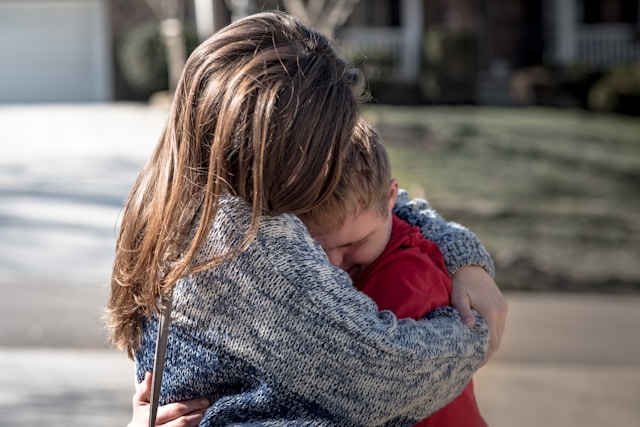
There might be nothing harder for a parent than guiding your child through the loss of someone they love. Whether the loved one is at home, in the hospital, or within a memory care community, the truth is—no amount of planning really makes those tough conversations easy. Kids see more than we think, though. Trying to hide the reality can leave them confused, scared, or even feeling alone in their grief.
If you’re facing this unthinkable moment with your family, here’s some warm, practiced advice to help soften the path.
Start With Honest, Simple Words
It’s tempting to tiptoe around the topic or fall back on vague phrases—“Grandpa’s just sleeping a lot,” or “Aunt Jo is going away for a while.” Kids usually see straight through it. Use clear, age-appropriate language: “Grandpa’s body is very sick and he may not get better.” Give the facts gently, and let questions happen.
Sometimes you’ll hear, “What happens when someone dies?” Keep your answer straightforward, and don’t be afraid to say “I don’t know” if the question is bigger than you can tackle right now.
Let Them See You Feeling
You don’t have to put on a brave face all the time. Kids need to know it’s okay to cry, be angry, or not have all the answers. If you’re sad, let your child see you be sad. It gives them permission to feel their feelings without shame.
Offer Choices Where You Can
Some children want to visit the memory care community, hospital, or home to say goodbye, give hugs, or even just sit for a while. Others get anxious at the thought. Invite, but don’t push. Offer ways to say goodbye that feel safe, like writing a card, drawing a picture, or sending a special message. If goodbyes in person are possible, lay out what they’ll see—who will be there, what loved one may look like, and what to expect.
Answer Questions, Again and Again
Kids process grief in waves. One day they’ll ask, “Will I ever see Grandma again?” and the next, “Who will make Christmas cookies now?” Be ready for questions that repeat, circle back, or show up unexpectedly. Each time, answer calmly, patiently, and honestly. Your steady presence matters more than the perfect script.
Share Stories and Build Memories
Help your kids remember the happy times. Look through photos together, tell favorite family stories, or make a scrapbook about your loved one. Celebrate silly moments and little acts of kindness that made that person special. This lets grief blend with gratitude—not just sadness.
Stick to Routines, but Go Gentle
Structure can be comforting, but expect some tough days. If your child wants to skip soccer for a week, that’s okay. Let teachers, coaches, or caregivers know what’s happening, so there’s space for a bad day to be “just a day.”
Get Extra Help If You Need It
Sometimes a trusted counselor, faith leader, or support group makes all the difference. Don’t wait if your child seems stuck in sadness or starts to withdraw. Kids can benefit from outside support just as much as adults.
Above all, remind your kids—and yourself—that love doesn’t end when someone is gone. Memories, traditions, and silly jokes keep loved ones close, even on the hardest days. It’s not about having perfect answers. It’s about holding each other close as you figure it out, together.
Leave a Reply